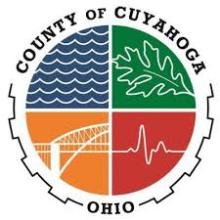
Cuyahoga County, Ohio’s Office of Innovation and Performance just issued a Request for Information (RFI) [pdf] which seeks to gather information from private vendors in the initial stages of a plan to improve connectivity for those on the wrong side of the broadband gap in Cleveland and the surrounding area. Responses are due January 15th.
Grace Chu, Cleveland Foundation Public Service Fellow with the Cuyahoga County Office of Innovation & Performance, spoke with us about the origins of the RFI and what the county hopes to get out of the request. The county released a new strategic plan in 2017, and broadband played a prominent role. In the time since, the county has partnered with local organizations (like DigitalC and PCs for People) in distributing devices and hotspots to get families connected. Their efforts have intensified during in 2020 and in the wake of the pandemic, but local officials seek a longer term, more comprehensive solution to the connectivity crisis. It sees projects coming to fruition over the next couple of years.
In the announcement, County Executive Armond Budish emphasized the scope of the digital divide and how the efforts they’ve taken during the ongoing Covid 19 pandemic:
Sadly, Cuyahoga County is one of the worst connected communities in the U.S., with 19 percent of households not having any type of internet service. While we’ve been working to lessen the digital divide through partnerships with the Cleveland Foundation and PCs for People—we provided broadband access to over 3,000 homes through this initiative—this RFI allows us to work toward a more long-term solution that can reach more people and provide easier access for those who need it.
In the request, the county signals its willingness to consider “a wide range of construction, operation, ownership, and financing options associated with public-private agreements, non-exclusive franchises, and other appropriate alternatives in its evaluation of business models to pursue. This includes creative solutions maximizing the efficiency of total investments by all parties while providing the scope of work to meet the needs of its residents.” Cuyahoga is home to 1.2 million residents including the city of Cleveland, where almost a third of residents lack broadband access at all (with two-thirds of those households earning less than $35,000 per year). Almost half of Cleveland households lack a wireline connection at home. The RFI indicates that it is primarily interested in new infrastructure projects that the county can play a role in supporting and facilitating, and while it requires respondents proposing networks to commit to basic broadband at 25/3Mbps (Megabits per second), it will prioritize those that aim at faster speeds of at least 100/10 Mbps.
The county, Chu said, is committed to projects which address the cherry picking which so often happens with huge out-of-state Internet Service Providers (ISPs). Currently, the area is served by AT&T and Spectrum. The latter, especially, has a long history of cherry picking and digital redlining in Cleveland and elsewhere.
More holistically, the RFI seeks to:
- Identify qualified vendors interested in engaging with Cuyahoga County to make high-quality Internet access available in the County limits either individually, in partnership with other providers, or in partnership with the County.
- Identify and evaluate innovative, cost-effective, sustainable, resilient business models to high-quality Internet access in the County limits.
- Learn more about what assets and contributions would facilitate the deployment of the vendor’s solution. Vendors should discuss permitting, rights-of-way, property usage, conduit access, fiber connections, electricity requirements, and any other required or beneficial contributions.
- At the County’s option, meet with select vendors for in-depth discussions regarding the vendors’ approach, capability, business model, and proposed key terms and conditions. Discussions may be expanded to jointly develop details of potential agreements, non-exclusive franchise, or other business arrangements.
Interested parties should see the notice. Responses are due January 15th.







